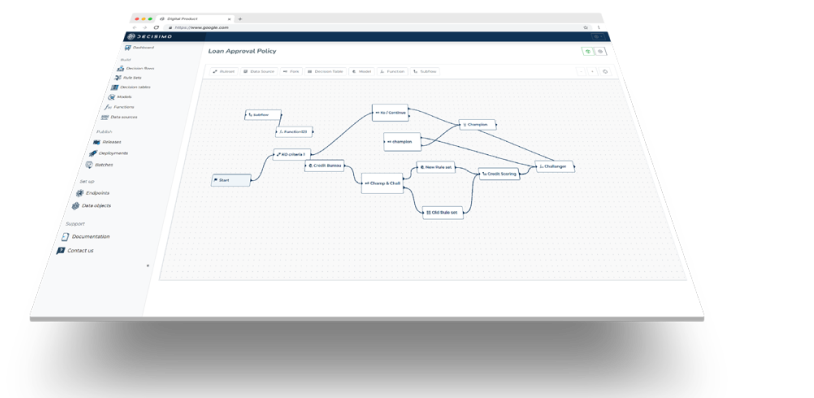Maximizing Login Security with a Rule Engine - Decisimo
Published on: 2024-08-10 18:29:56
A rule engine can provide powerful tools for protecting login systems against account takeover and bot attacks.
By allowing users to define custom rules and conditions based on historical data, such as session information, IP addresses, and browser types, a rule engine can help identify and block suspicious login attempts and escalate login requirements for flagged attempts.
There are many benefits of using a rule engine for login security and provide examples of logical rules that can be implemented.
What are the Benefits of Using a Rule Engine for Login Security
A rule engine can enable fast detection and response to potential security threats by automatically triggering actions when certain events occur.
For instance, a rule could be created to monitor login attempts from IP addresses that have attempted multiple failed logins within a short period of time, indicating a possible bot attack.
With this rule in place, the system can quickly block the login attempt without the need for manual intervention.
How escalating requirements can improve account security
Another benefit of using a rule engine is that it allows for the implementation of escalating login requirements based on the results of the rules.
In addition to enabling the implementation of escalating login requirements, a rule engine can also take advantage of the results of Private State Tokens (PSTs) to improve security.
By using PSTs, a rule engine can more accurately identify suspicious login attempts and trigger additional security measures, such as the requirement for an OTP code or other challenges.
This can help prevent attackers from successfully accessing accounts, even if they have obtained some of the user's login information.
Preventing Account Takeover and Bot Attacks with Logical Rules
Some examples of logical rules that could be implemented using a rule engine to prevent account takeover and bot attacks include:
- Requiring additional authentication for login attempts from unfamiliar or suspicious IP addresses or devices.
- Blocking or escalating login attempts from IP addresses that have been associated with previous cyberattacks or multiple failed login attempts.
- Requiring additional authentication for login attempts during non-typical hours or from unfamiliar locations or devices.
- Blocking login attempts that use simple or commonly-used password phrases.
- Verifying the presence of a Private State Token from a trusted issuer to ensure that the user is authorized to access the account.
Tailoring Login Security to Regional Risks with a Rule Engine
One of the key advantages of using a rule engine for login security is its ability to quickly target specific IP addresses or combinations of attributes that may be the source of an attack. For example, if an IP address is identified as being associated with a bot attack, the rule engine can automatically block login attempts from that IP address and require additional authentication for any future login attempts from that IP address. This can help prevent attacks and protect user accounts.
Another advantage of using a rule engine is its ability to easily customize and tweak logical rules to suit the specific needs and requirements of a particular region. For example, a rule engine could be used to implement stricter authentication requirements for login attempts from countries with a high prevalence of cyberattacks, or to require additional authentication for login attempts from IP addresses associated with known malicious actors. This can help ensure that the login system is tailored to the specific needs and risks of the region.
Conclusion
Overall, the key advantage of using a rule engine for login security is its ability to quickly and easily add and customize logical rules to protect against account takeover and bot attacks. With a rule engine, users can define custom rules and conditions based on historical data, and quickly target specific IP addresses or combinations of attributes that may be the source of an attack. This can help improve the security of the login system and protect user accounts.

